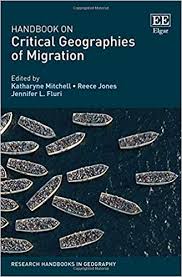The chapter seeks to understand how precarious migrants (temporarily) succeed in organizing political protest against all evident odds. Comparing episodes of refugee activism in Austria and Germany, the analysis explores specific geographies of control in restrictive asylum regimes, and spatial repertoires to overcome them.

Political protest by ‘refugees’ has proliferated worldwide, yet has only received marginal attention in social movement studies. According to dominant movement theories, migrants are unlikely subjects of mobilization due to legal obstacles (including ‘deportability’), limited economic and social capital and closed political and discursive opportunities. Building upon recent innovations in contentious politics, which stress the ‘relational qualities of space’, the authors comparatively sketch out and theorize processes of self-organized refugee activism in Austria and Germany. It is argued that experiences of isolation and exclusion from society have fundamentally shaped the life-worlds of ‘refugees’ and the contentious strategies they have chosen to overcome spaces of control and disintegration: mobile tactics such as marches and bus tours as well as autonomous camps and occupied buildings are central components of refugees’ repertoire of contention across the two national contexts the authors explored. In both cases, appropriating and accessing spaces with favourable relational qualities was crucial for transforming localized dissent into larger mobilizations.
Steinhilper, Elias and Ilker Ataç (2019): Contentious Subjects. Spatial and Relational Perspectives on Refugee Mobilizations in Europe. In: K. Mitchell, R. Jones and J. F. Fluri: Handbook on Critical Geographies of Migration. Cheltenham: Edward Elgar.Journal Article - 2025
Journal Article - 2023
Journal Article - 2023
Journal Article - 2023
Journal Article - 2023
Monograph - 2023
Monograph - 2022
Monograph - 2022
Journal Article - 2021
Journal Article - 2021